Obstacle 1. Not paying attention to the voice of intuition, not trusting one’s perceptivity.
It is my belief that one of the first obstacles in the way to qualitative change can be distrust towards your own intuition.
Previously, when talking about a perfect individual, I gave an example of how N noticed that his time in the theatre was coming to an end. He was not fired, he didn’t struggle when acting on stage, he didn’t have any conflicts with other actors. However, by carefully analyzing the situation and noticing the indirect hints, N was able to detect the upcoming transformation. This allowed him to react to the change properly.
Similarly, we intuitively notice the transformation in development. We notice how we gradually lose interest in our job. We capture a subtle desire to meddle in a new field. We see when our relationships suffer and, on the contrary, when we get closer with strangers. Everyone is able to notice indirect or direct signs of a forthcoming transformation.
This is where the question of trusting our instincts arises. Noticing a new professional interest is not enough, we still need to allocate some time to move towards this new interest. Feeling a crisis of intimacy in a relationship does not fix the problem: we will need to act on it in order to improve the relationship.

Unfortunately, we still live in an era where rational thought easily wins over both emotional and intuitive impulses. As a consequence, we easily dismiss “irrational obsessions” and find reasons why we should not act.
“Hobbies? Please! I hope I’ll have some time to sleep in between my two jobs.”
“So what we lost understanding in our relationship?! We’ve somehow managed before the last fight!”
“Getting a second degree? But I am no longer 16 to spend 3 years of my life on a whim!”
Just a couple of reasons is enough to shut the door of a new quality change that could bring joy along with some fresh air into one’s life. Now, we’ll either have to wait for the next opportunity or react to the less favorable circumstances, which will dictate the new reality a little more harshly.
Intuition is a very complex topic as it represents one of many inner voices. The hard part comes to distinguish between them. Do we make a choice out of fear, common sense, intuition, or desire? How do we separate the often loud “I WANT IT” from the quiet “I know I should do it”?
When it comes to learning a new skill on our own I have about the same answer for everything: attention is a key.
External and internal transformations.
I would say the voice of intuition is quite unique for everyone. For some of us, it resonates “deeply in our bones,” for some, this voice is “the quietest voice inside,” for others it is “clear, distinct, and abrupt”.
Trying to follow different motivations and analyzing the results eventually builds a deeper understanding of the internal impulses, as well as their sources. We learn to trust our hunches and essentially follow them even in the most ambiguous situations.
I personally like to experiment with simple everyday tasks. For instance, when I take my backpack for a walk or when visiting my friends, I put inside various items that I believe might be useful on that particular day. At times it could be a pen and a notebook, an umbrella, a few extra coins, or a little gift for a stranger. The results of such experiments sometimes turn out to be astonishing.

Another cool trick that is also efficient and undemanding is related to walking in the city. I sometimes pick a day when I have a lot of free time, think of a few items that I wanted to buy for a while or places I wanted to visit, then I go to a random district in my city and wander around. I take random turns, walk on random streets and see what is out there. There are sooo many treasures I found this way!
It is a lot of fun to test one’s intuition in such a simple way. On the one hand, the results of our choices are seen almost immediately, and on the other hand, we don’t risk anything. More importantly, however, the needed trust towards one’s hunches is earned day by day, which eventually helps when making more serious choices!
Obstacle 2. Being responsible.
I love love love the topic of responsibility and consider it super significant in a life of an adult. Taking responsibility for what happens in one’s life is like grabbing the steering wheel of a car and going on a journey. I drive while admiring the wonderful views around me, catching some stones hitting the windshield, seeing cracks on it, getting my tires flattened. Then I cry, laugh, change tires, and keep driving.
The idea of taking responsibility for one’s life has been recently popping up in plenty of articles in popular psychology. I’ve also noticed readers getting confused and sometimes unpleased when seeing the word “responsibility” in a text. Perhaps, because responsibility is closely associated with guilt. The word does have several definitions, some of which are rightfully related to legal obligations hence guilt, which is associated with breaking them.
Later in the text when using the word responsibility I will rely on the following definitions:
“Responsibility is the state or fact of having a duty to deal with something or of having control over someone.”
“Responsibility is the opportunity or ability to act independently and make decisions without authorization.”

Following these definitions, we can say that young children have little responsibility in their lives. They neither can make important decisions on their own, nor they have any complex duties. This, however, implies that children also do not have many ways of affecting their own lives.
Adults have more responsibilities. Adult people have to take care of themselves, their kids, pets, sometimes parents, or other loved ones. They are able to act independently and not ask for permission before making a significant choice.
An adult is a responsible person.
Taking responsibility, similarly to driving a car, implies our involvement in a situation.
I am responsible for my pet. This means, every day I make sure my pet is healthy, happy, and well-fed.
I am responsible for a plant in the garden. This means, I water this plant and remove weeds. I will not leave it at the mercy of the weather conditions or wild animals.
I am responsible for the relationship with my husband. This means that I do my best to nourish the important aspects of our relationship, such as love, respect, and trust. At the same time, it is my job to not be on his case all the time.
I am responsible for my life. This means, every day I make sure I am healthy, happy, and well-fed. I “water” myself and remove “weeds” from my life. I do not expect someone else to jump into my car and grab the steering wheel.
When I say “I am not responsible” for an event / situation / relationship / an internal state – I let go of the steering wheel, move to the passenger seat, and see where the car goes.
“I am NOT responsible” has the same level of significance as “I am responsible”. For instance, I am not responsible for the outcome of other people’s relationships, even if a beloved friend comes to me for a piece of advice. When I keep in mind that someone else’s relationship is not my responsibility, I do not suffer for weeks from pangs of conscience because I gave the “wrong” advice or provided with too little help.
I am not responsible for the emotional state of other people, even of my closest friends, my spouse, or my children.
“Not responsible”, however, does not mean I can not help. It also does not imply I should blame others for their weaknesses or insecurities.
“I am not responsible” simply means I don’t jump into other people’s cars desperately trying to take control over their motion without understanding the direction they took and the goal of the trip.
A clear vision of the limits of one’s own responsibility helps to direct our attention properly. It has nothing to do with blaming ourselves or others. It has nothing to do with feeling pathetic when facing failure. If I failed, if my tire is flattened, I replace it or look for help of a mechanic.
Unwillingness or inability to take responsibility for one’s life is the next obstacle on the path of transformations.
This problem often comes up in relationships. When a relationship is clearly undergoing change and various conflicts arise, we sometimes think over the following thoughts.
“Why should I be the first one to apologize? She started a quarrel in the first place! She should be the one to make peace with me.”
“Why do I always need to take care of this relationship? He does not even pay attention to what I say! If he cared, he would notice the problems between us a long time ago. He would do something about them!”
Similar considerations apply to other areas of life, not just relationships.
“Why on Earth should I fight over my beliefs?! Why should I go to so many conferences and present my ideas? My friend got a job at Google through an acquaintance! She didn’t even have that much work experience!”


Interestingly, such words often have a very particular tone of voice. When we say “why me?!”, we often sound childish and capricious. It’s almost as if we said: “Why do I need to work?! Someone gets a bag of sweets without even asking for it! Where is justice in this world?!”
This issue is solved quite simply. We just need to find an adult figure inside of us. Then we ask ourselves: do we want to improve a relationship? Do we want a new job? Do we want to develop new habits? If the answer is yes, then we start looking for ways to solve the problem. It may turn out that a couple of great opportunities have been sitting in front of our nose for a long time already.
The same applies to improving a relationship. Am I lacking tenderness in my romantic relationship? If I do, then I look for ways to bring more tenderness into it.
What if my partner does not consider it to be a problem? What if he does not really care about tenderness at all?
Great, then I ask myself: do I want to be in this relationship? If the answer is yes, then I will be the initiator of change. I will start a conversation, I will look for ways to express love in a new way, I will come to apologize, and so on.
People are rather sensitive. We tend to react to the change that has been initiated by someone else. Therefore, my partner will likely respond to the change I brought, and the relationship will transform, which is exactly what we need.
Under certain circumstances, the entire life requires a big transformation. In this case, we often find ourselves at the very bottom, where it seems that nothing depends on us. Let’s pretend I was suddenly fired and a few debts have piled up, also at the same, friends provided me with zero support. I could then see myself as a tiny chip of wood thrown in a huge merciless waterfall of events. All I can do is come up to the surface, grab some air, and somehow manage to survive. It is usually a moment when we feel most sorry for ourselves. “I can’t even trust myself anymore because everything that is left inside is a huge ball of worries. “

Such times are truly difficult. They bring us sadness, loneliness, and even hopelessness. In this case, responsibility might matter more than ever. When I feel like a tiny chip of wood in the waterfall, what helps is understanding how I appeared where I am.
What did I do to get fired? What did I miss at the workplace?
How come not a single friend helped me out? Was I absent in my relationships? Have I done something wrong?
When did my debts get so high? Where did all that money go?
I don’t answer these questions to feel guilty and worthless, to feel ashamed, or avoid being hurt ever again. I answer these questions in order to remind myself that I am the one in control of my life. I am not a passive wooden chip. Rather, I am a driver on the road and I have always been one. Everything is fine with me. I am not broken. Perhaps, I dropped asleep for a little while, went off the road, caught a few bumps, and scratched my car with some bushes. But I have woken up. It’s time to freshen up and get back to the highway.
Obstacle 3. Bringing back the dead.
Sometimes transformation implies a serious and difficult choice to make, such as ending a relationship, abandon an idea, a workplace, or a project that is close to our heart. And here comes another obstacle, which is basically the inability to let go of something that is no longer existent. Or, to be more precise, the inability to see when a precious part of one’s reality dies.
Here are a few examples of what it might look like.
In relationships, people sometimes live together out of a habit. Such a relationship is only seemingly existent, people automatically greet each other, automatically exchange a couple of questions about the day, and then each will go and mind their own business. Every once in a while they might find themselves thinking they became strangers to each other. Yet, such thoughts are abruptly pushed away and blamed on the full moon, a passing crisis, or mood swings.
When it comes to having an idea, an individual might persistently search for some motivation, although it is nowhere to be found. For instance, a young entrepreneur thought of an idea to open a thrift shop with her friends. They discussed it enthusiastically for a couple of months and on the third month all of the friends changed their minds, the funds disappeared, and the entrepreneur herself got busy somewhere else. Now all she has is her memories of the previously existing enthusiasm, which make her wonder how can she motivate herself better in order to make a thrift shop become a reality.
A similar situation can occur in ongoing projects. Let’s say an artist created an interactive exhibition, which he takes to different countries. The exhibition became quite popular. After a few years, however, people started losing interest, an artist himself is no longer sure of the purpose of his project, and on top of that new projects appeared in his mind. Instead of moving forward and working on new projects, this artist drowns in vanity and blames people for abandoning a project that was once great! He remembers the financial success he made with this interactive exhibition and looks for ways to revive a project and milk it a tiny bit more.
The underlying idea connecting all three scenarios is that an individual focuses on the memories of the great past or on the dreams of the wonderful future, entirely forgetting to look at what is actually happening at this very moment.
Sometimes we hold on to the situations that no longer have life in them for years. In that case, a relationship / a project / an idea will live as long as an individual keeps his/her attention in it. As soon as attention moves to another place, dead relationships / ideas / projects naturally cease to exist.
This obstacle is, therefore, easy to overcome. We just need to remove our attention and efforts from areas that are no longer “alive”. The difficulty lies in distinguishing between what is “alive” and what is “dead”.
For instance, the presence or absence of conflicts in a couple is not necessarily indicative of whether a relationship is dying out or not. The absence of disputes might speak of mutual indifference, and heated quarrels, on the contrary, may indicate the flames of passion.
Similarly, complex obstacles appearing during a project development do not always signal that the project is not worth fighting for.
In terms of diagnostics and analysis of the processes occurring within the company, relationships, or projects, the best instrument I know would definitely be Tarot cards. As weird as it might sound for skeptics, Tarot easily separates an individual’s thoughts, dreams, and fears from the objective reality.
There is also a way to test the viability of the situation. You can remove your attention from the relationship ( a project, an idea, etc.) for a little bit and see what happens. A relationship or a project that is still “alive” will keep living without our attention constantly feeding it. Overall, this test works, although it is very simplistic. Tarot, however, is way richer, quicker, more precise, and extensive.
Obstacle 4. My way or the highway.
Especially persistent people may try to make transformations go their way, no matter the means. This obstacle is often seen in workaholics, career-oriented people, and simply just stubborn individuals.
Persistence can be seen at different stages of transformation. Here is what it might look like.
Let’s say a guy called D is married but his relationship no longer brings happiness to either him or his wife. Love is long gone, the spouses are not interested in each other. They spend the majority of their time by themselves. When they do see each other, however, they mostly fight. D has a feeling the relationship is impossible to revive, and he is aware of his responsibility within the relationship. D also knows that it is unlikely that everything will ever be back to normal.
Yet for some reason, D insists on continuing the attempts to save the family. There may be many reasons why he does that:
-
-
- D wants to save his marriage in the name of love!
- He believes he can only marry once in a lifetime.
- He is not used to giving up.
-
And so on.
D clearly sees the unwillingness of his wife to repair the family. He notices that all of the attempts from his side are not successful. Yet he stands his ground.
Here’s another example. A girl M works as an accountant and dreams of becoming a professional dancer. She is talented. She also spends a lot of time training and learning how to dance. One day a series of opportunities appears before her, suggesting a slow transition to a new profession. Friends of M offer her to participate as a dancer in music videos. They invite her to create dances and perform with them at different theatres. Other friends are willing to advertise M on their social media profiles. Many opportunities arise, yet M declines every single one of them. M has a goal: she wants to get a full-time job as a teacher in a famous dance studio. She has had three attempts to get in that studio and she has failed all three times. M is willing to try again. Other proposals seem unpromising and boring to M. These goals seem to be too “easy” for her.

An overly persistent person wants the transformation to go according to his/her plan. Any variation is considered “wrong” or “unpromising”.
If I move to another town, I move with comfort! If I become successful, the success should be insanely huge! If I fight with a loved one, only a family psychologist can help!
Persistence itself, of course, is an excellent quality, the question is how we use it.
The two examples I described rest on the desire to control the situation and remain in seemingly safe conditions. “It’s either my way or the high way” – is what we say to ourselves and miss many excellent opportunities.
The medicine against control is trust.
As for D in my example, he could choose to let go of his relationship and see what would happen.
The M girl could put some trust in her fate and take a couple of “unpromising” offers to see what comes out of it.
The funny thing is, usually when an individual beats his/her head against the wall, there is a high probability that the door Is just two steps to the side. The entrance to the new universe is big and bright, we just need to look around for it.
Obstacle 5. A serious face.

Excessive seriousness is a huge challenge. Not only it interrupts transformations, but it makes life difficult overall. A similar problem appears when we attribute too much importance to a qualitative change.
Excessive seriousness often makes the goal close to impossible to achieve, leading to frustration and prolonged sadness.
Here’s what it might sound like inside of us:
“I will move forward on the path of spiritual enlightenment and will not make a mistake!”
“This was the most meaningful relationship of my life, now it will be impossible to find someone like him/her.”
“My emotions are extremely important! You will destroy my internal peace with your harsh words! I’ll have to spend the next 20 years at a counselor’s chair!”
“The biggest opportunity of my life has come… It’s either now or never! I absolutely cannot screw it up.”

The universe generally doesn’t like tension and excessive fixation on anything. What usually happens when we begin to worry about a topic of great significance, the problems we try to avoid immediately appear before us.
Excessive seriousness is cured by smiles and jokes. Laughing at our own seriousness releases tension and helps walking on the path of transformation.
We’ll definitely walk imperfectly, failing exams in the “most meaningful relationships,” getting yelled at by annoying strangers, missing out on promising opportunities. All sorts of things will happen. Yet many doors will still open. We’ll then look at the opportunities, choose a door to enter and begin walking, diligently and conscientiously, yet with a smile on our faces and with lightness in our hearts.

